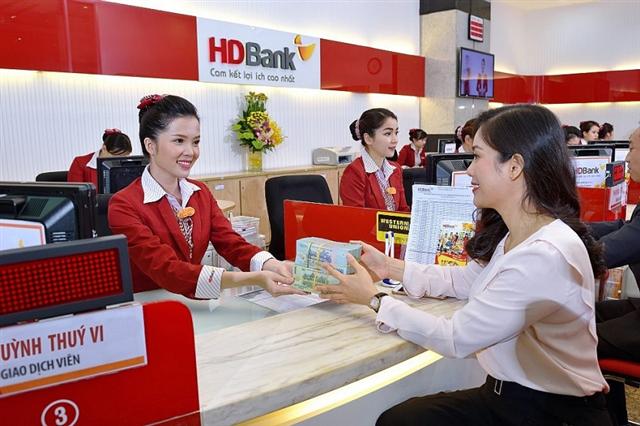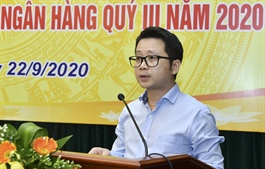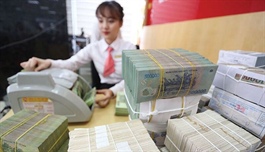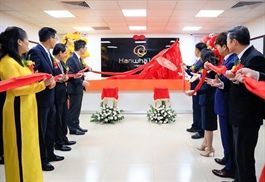Vietnamese banks take cautious approach to foreign ownership limit
Vietnamese banks take cautious approach to foreign ownership limit
The current pandemic has not only put mounting pressure on the quality of Vietnamese banks’ assets and profitability but also hampered some lenders’ cross-border mergers, forcing them to take different approaches to their foreign ownership limit.

Many Vietnamese banks are looking to attract foreign investors while others are actually lowering foreign ownership limit. Photo: HDBank
|
Last week, privately-held lender Nam A Bank confirmed its plans of holding its initial public offering on UPCoM.
The local bank, after checking out Basel II requirements, has also expressed its eagerness to tie the knot with deep-pocketed international investors by lifting its foreign ownership limit (FOL) to 30 per cent to benefit from international expertise and a larger pool of funds.
Currently, its largest shareholder is domestic player Pacific Dragon Ltd., which holds approximately 11 per cent of the stakes.
Vietnamese banks have a 30-per-cent FOL, which could constrain efforts to raise equity from overseas investors and makes them reliant on capital in the shallow local market.
Thin capital buffers are still a bitter pill to swallow for some major banks such as Agribank, the state-owned lender that is still bogged down in its capital increase ambitions.
In general, many banks such as Vietcombank, Military Bank, BIDV, and SHB have disclosed intentions to team up with foreigners as well as utilise additional capital injection to diversify business, ensure sound financial sources, and strengthen their operations to better align with international standards.
On the other hand, a few banks are adapting a rather cautious approach when it comes to foreign tie-up deals. The vast potential of cross-border deals is appealing, but do not come without a cause: the current turmoil could create opportunities for big banks to buy up struggling lenders.
A few days ago, the board of HDBank confirmed its decision to lock the bank’s FOL at 21.5 per cent with the goal of expediting plans with strategic partners.
Simultaneously, the southern lender also decided to issue international convertible bonds worth $160 million in total value. These bonds will be issued to institutional investors in developed markets. Upon successful completion, the proceeds from the bond issuance will boost HDBank’s medium- and long-term funds and facilitate its development strategies as planned.
Some banks also followed suit by reserving their foreign caps such as VIB did at 20.5 per cent or Lien Viet Post Bank at 9.99 per cent.
In May, VPBank’s board requested approval from its shareholders to lower the FOL to 15 per cent from the current 22.77 per cent. The bank would also launch a treasury buyback for 5 per cent of the shares to realign the ownership structure.
“The COVID-19 crisis has triggered major disruptions for the whole economy and global capital flows. Thus, the remaining foreign ratio at VPBank is slated to be offered to other investors who are ambitious to bring the best out of the bank when market conditions start to improve,” said a bank representative.
Last year, the bank issued $300 million of bonds with a three-year term under the Euro Medium Term Note programme. VPBank’s bonds were issued under the book building method and based on the consultation and arrangement of Standard Chartered, BNP Paribas, and J.P. Morgan. Should a rosier economic scenario play out, there could be some reward for their suffering.
According to Nguyen Xuan Binh, head of Research at KB Securities, there are various reasons for local lenders to lower their FOL which can come from the internal decision of the banks’ board. Market gyrations, coupled with a gloomy outlook for the global economy, were also fuel to the fire.
“The public health crisis has made a significant impact on capital flows in the global financial market and foreign investment funds, especially those from the US and Europe, have withdrawn from emerging and frontier markets,” Binh told VIR. “A number of bank shares have been sold by foreign investors. In that situation, some banks in Vietnam have actively lowered the FOL so as to reserve more opportunities for strategic partners when the economy shows signs of recovery.”
Techcombank has just locked its FOL at 22.5 per cent, as it aims to support foreign investors to purchase 439,000 shares through the transfer of outstanding shares.
Meanwhile, the EU-Vietnam Free Trade Agreement and the EU-Vietnam Investment Protection Agreement are expected to amplify European giants’ presence in Vietnam while also strengthening local lenders’ operations. Vietnam will lift the FOL at local banks to 49 per cent in the next five years, with the exception of the four joint-stock commercial banks in which the state still holds a controlling stake – Vietcombank, VietinBank, Agribank, and BIDV.

























